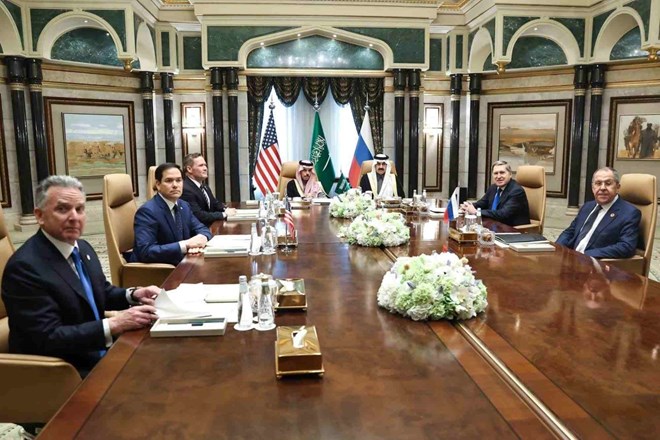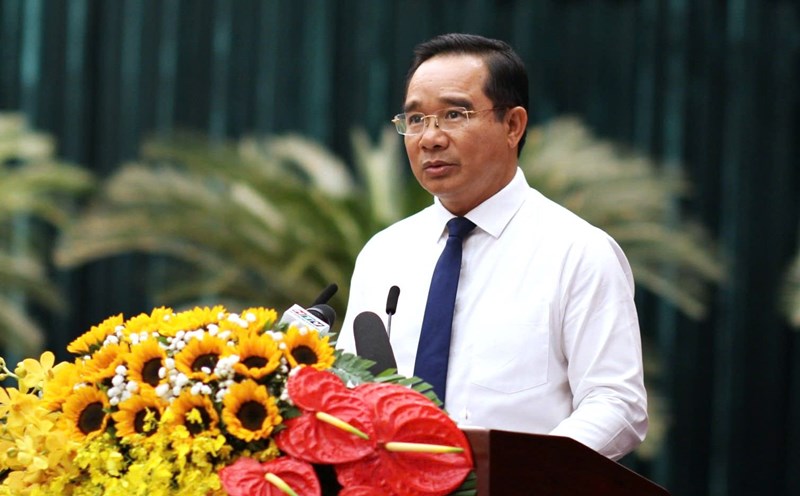RT reported that on February 18, Russian Foreign Minister Sergei Lavrov announced that Moscow strongly rejected the deployment of NATO soldiers in Ukraine after the end of high-level negotiations with US officials in Riyadh (Saudi Arabia).
Speaking to the press, Mr. Lavrov affirmed that Russia does not accept any foreign armed forces appearing in Ukraine, whether operating as soldiers of the European Union (EU) or as individual soldiers of each NATO member state.
Moscow has repeatedly warned that "any force that enters Ukraine without Russian consent and permission is a military target, with completely understandable consequences". While the Russian Foreign Ministry said that this could escalate the conflict.
On the US side, President Trump said he fully supported the Western countries' plan, but stressed that Washington had no plans to send its troops into any force operating in Ukraine to ensure security.

Last week, US Secretary of Defense Pete Hegseth also announced the exclusion of the possibility of deploying US troops as part of potential security commitments to Kiev.
The change in Washington's policy has prompted an emergency meeting of European NATO allies, summoned by French President Emmanuel Macron on February 17 to agree on the EU's stance. However, this meeting did not achieve any specific results.
Mr. Macron was the first to propose this idea since February 2024. Europe is expected to deploy around 25,000 to 30,000 troops to increase deterrence in the region and France will contribute around 10,000 troops.
According to the Financial Times, EU countries are divided on this issue, with Germany, Italy, Poland and Spain being not interested in sending peacekeeping forces to Ukraine.
German Chancellor Olaf Scholz later called for unity in NATO but declined to respond to the possibility of Germany deploying troops, calling it not a matter for discussion.
Meanwhile, British Prime Minister Keir Starmer said at the Munich Security Conference last weekend that he was ready to provide security commitments to Ukraine, including the deployment of British troops.
In January, Ukrainian President Volodymyr Zelensky proposed deploying at least 200,000 foreign soldiers as peacekeeping forces in Ukraine to implement any peace agreements with Russia.











